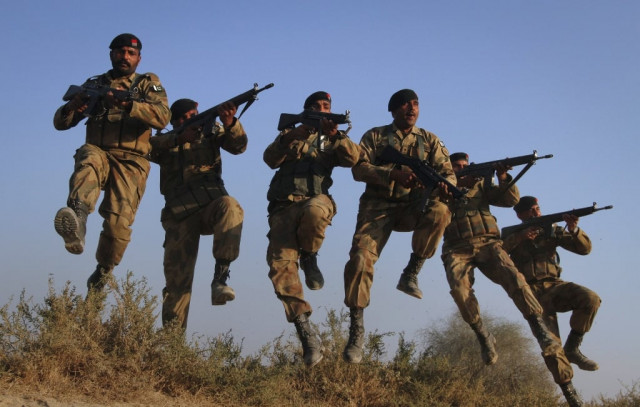On the North Waziristan operation
Pakistan has to fight terrorism and North Waziristan is the battleground.

Hence, the first big contradiction was the anti-Americanism signalled by the religious and political parties in their post-Malala statements: that the attack on the girl should be seen as an extension of the drone-and-blasphemy problem and thus ignored. After that came the electoral fixations of various parties. Imran Khan’s Pakistan Tehreek-e-Insaf eyed votes in Khyber-Pakhtunkhwa which irked the JUI-F relying on votes in the semi-tribal belt, stretching from Dera Ismail Khan to northwestern Balochistan under the shadow of a vague accommodation with the Taliban. Nawaz Sharif’s PML-N stuck to its line of ‘talking to the Taliban’ because of its vulnerability to the Punjabi Taliban and their hinterland elements capable of delivering suicide bombers. The Jamaat-e-Islami did not want to suffer an erosion of votes in the face of Maulana Fazlur Rehman’s refusal to revive the clerical alliance called the MMA and was, surprisingly, more decisive in its rejection of the Malala incident through its leaders Qazi Hussain Ahmad, Amirul Azeem and finally its current chief, Dr Munawwar Hasan. Malala’s ‘American connection’ began to be highlighted on the Internet. One great persuader in this respect was the intent to isolate the MQM, which seemed to harvest the post-Malala feeling more daringly than others, by calling on the army to go after the Taliban.
The ANP, despite its clash with the MQM in Karachi, decided to advocate the attack because of its virtual collapse in the face of Taliban terror in Peshawar, which threatened also to underscore the folly of rejecting the PPP-MQM decision to stage local government polls in Sindh. Deluded by the army chief’s newfound conviction that fighting extremism is Pakistan’s own war, the PPP hoped that North Waziristan would now be attacked to avenge the assassination of its leader, Benazir Bhutto, and to give it a level playing field during the coming general election, during which the Taliban terror would be the deciding factor. The PPP’s minister then suffered a deflation of his chest announcing that no attack was in the offing because the army said that a political decision was needed before it could go into the agency. This time, it did not say that it would choose its own timing vis-à-vis the attack against several communities of terrorists congregating in North Waziristan in the presence of a full complement of Pakistan’s military positioning. Suddenly, the army chief seemed keen to dispel the impression given by his remarks on Malala’s tragedy.
North Waziristan is where Hakimullah Mehsud is hiding after his near-successful attack on Times Square, New York. It is where the Haqqani network has its base from where it spreads out to Kurram Agency conducting Shia killings and attacking inside Afghanistan. It is where the Wahhabi-Takfiri Arabs and al Qaeda rank and file are located. It is where the Uzbeks and the Punjabi Taliban, holding governor Salmaan Taseer’s son, are spending rest and recreation time after destroying Pakistan’s peace. The Lashkar-e-Jhangvi is also there as a formal ally of al Qaeda together with Jundullah. Pakistan has to fight terrorism and North Waziristan is the battleground. The world will rally around Pakistan if it decides to fights its own war.
Published in The Express Tribune, October 17th, 2012.















COMMENTS
Comments are moderated and generally will be posted if they are on-topic and not abusive.
For more information, please see our Comments FAQ